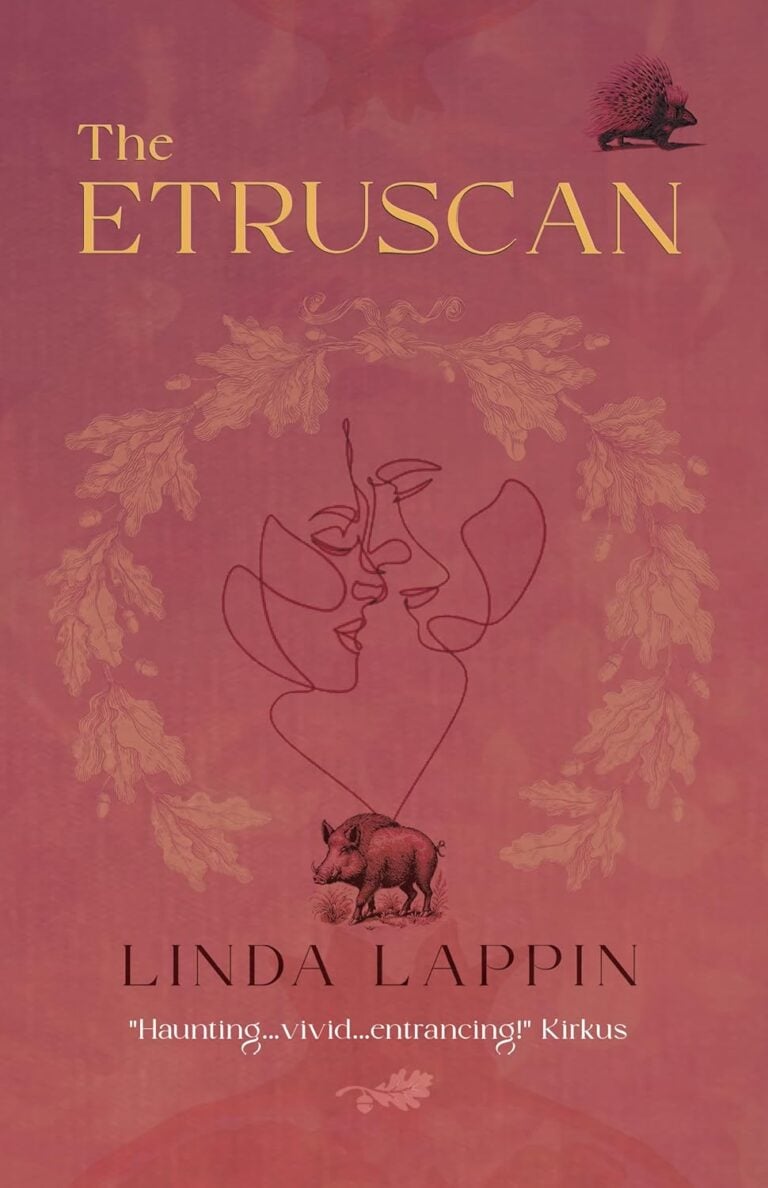The Etruscan (subtitle: The Notebook of Harriet Sackett) received a 4+ star review, making it an IndieReader Approved title.
Following find an interview with author Linda Lappin.
What is the name of the book and when was it published?
The Etruscan (subtitle: The Notebook of Harriet Sackett) –was published in its first US print edition in September 2024.
What’s the book’s first line?
“Stephen Hampton sat on the sofa of his sitting room, reading a letter, a blanket thrown over his crossed legs.” NB: the novel includes the discovery of a disturbing diary the first line of which is: “The road to the tombs skirted a field of shriveled sunflowers, an army of nodding heads on stalks, bowed and blackened awaiting harvest.”
What’s the book about? Give us the “pitch”.
In 1922, American photographer Harriet travels solo to Italy to capture images of Etruscan tombs. She keeps a diary of an obsessive love affair with Count Federigo, who unravels her life.
A bit more about the book: The story is told through the perspective of Harriet’s English cousins, who read Harriet’s diary to understand what has caused her mental breakdown. They set out to find her lover, but can find no trace of him or any of the people she mentions in her diary. Harriet’s cousins wrestle with the meaning of the diary. Did Harriet intend it to be a true account, a story in code, a record of daydreams, a work of fiction? Conflicting interpretations are suggested, but it’s up to the reader to decide in the end.
What inspired you to write the book?
For a while I lived in an old farmhouse on the outskirts of what was once an Etruscan settlement – between Tuscany and Rome. The house had a gothic atmosphere –full of distorting mirrors and odd stone carvings, like Harriet’s house in the novel. The window of my writing studio overlooked Etruscan tombs carved in the hillside, and below that, a cemetery where votive candles flickered all night. I spent months wandering through the woods, exploring Etruscan and medieval ruins in a landscape that can lure you into daydreams.
At the time, I was also studying gothic art and fiction and the lives of women travelers in the early 20th century. These influences fused in writing The Etruscan. The romantic relationship between the main character and the count is based on classic archetypes –the contrast between the temporal (Harriet) and timeless (Federigo). And in Jungian terms – a woman and her animus. I have always been very sensitive to places and atmospheres, and have written a book (The Soul of Place) on how to enhance creativity by tuning in to the soul of place. In writing The Etruscan, I made use of that method.
What’s the main reason someone should really read this book?
This is a book for readers who love atmospheric mystery and gothic intrigue with a hint of the occult –set in lush Italian landscapes, with strong characters and a haunting sense of place.
What’s the most distinctive thing about the main character?
Despite her hard-headed pragmatism, Harriet has an artistic and spiritual yearning for fulfillment that goes beyond the routine of daily life. This makes her especially vulnerable to the count’s charisma. In some ways she’s a fast forward to a more modern Isabel Archer (Henry James, Portrait of a Lady) with a pinch of Jane Eyre. One reader described her as the female counterpart to Nicolas Urfe in The Magus – it’s a flattering and intriguing comparison and not off the mark.
Which book do you wish you could have written?
If I could have written any book – it’s a toss up between Lawrence Durrell’s Justine and Donna Tartt’s The Secret History.
Which writer, living or dead, do you most admire?
The writer I admire the most is Virginia Woolf.
What’s a great piece of advice that you can share with fellow indie authors?
Best advice for indie writers – never give up, read the classics over and over, learn to recognize your weaknesses, and don’t put too much trust in AI.
EXTRAS: a young video maker made this eerie trailer for The Etruscan
https://youtu.be/-9tPyQnl0ok?si=8oHsmOQN1fe-KzVJ
Also, In my (free) substack, I focus on my Italian life, travels, and my writing.

